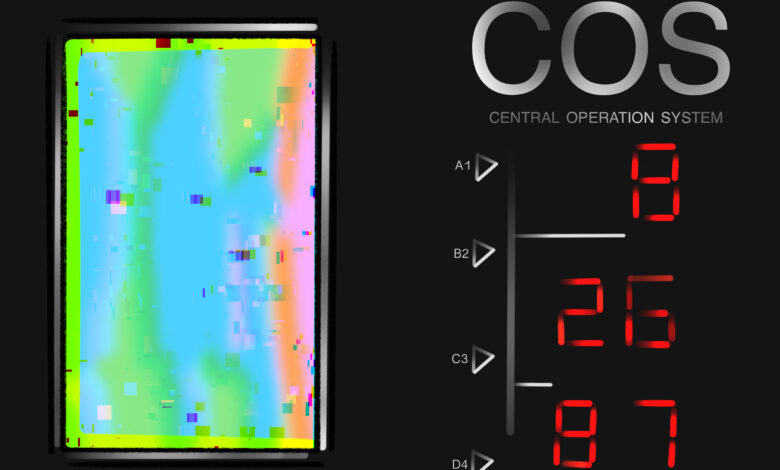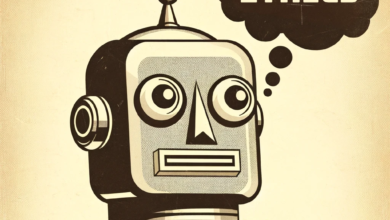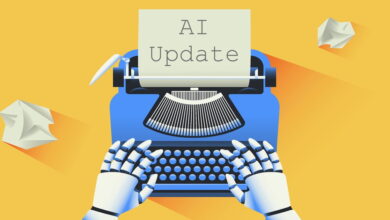How ‘The X-Files’ foreshadowed artificial intelligence dilemmas

Science fiction stories have always had the power to instill awe in the hearts of their viewers, creating a picturesque vision of adventurous explorations that could be waiting in the future of humankind. But the genre also possesses the capability to strike an intense and preternatural fear. Fear of external and undiscovered forces. Fear of being overtaken by the very technology we have painstakingly created. Or, fear of what we as a species are capable of doing with the power of overdeveloped technology in our hands.
From novels to films to television, science fiction has been an ideological breeding ground for the potential of humanity and the potential for its imminent destruction. From the very first works of science fiction, technology and the dangers of its development have been fixtures of the genre. Mary Shelley’s magnum opus “Frankenstein” showcases the constant human fear of technological advancements and the monsters they may allow humanity to create. Scientific adventure tales like Jules Verne’s “Journey to the Center of the Earth” make us fear not only the tech we develop but the dangerous mysteries it may allow us to uncover. Themes of technology and fear originating from 19th-century literature have bloomed, branching out into the film and television of the present where some of our fictional fears seem more realistic than ever. But no work of science fiction, from “Star Wars” to “Doctor Who” to “Dune,” has so aptly conveyed the innate human fear of change and technology, nor the role of humanity in its own destruction, than “The X-Files.”
First debuting only months after the era-defining global launch of the internet, “The X-Files” could not have premiered against a more appropriate backdrop of current events. The sci-fi procedural follows FBI agents Mulder (David Duchovny, “Californication”) and Scully (Gillian Anderson, “Sex Education”) on their (sometimes) government-approved search for the supernatural, and while perhaps best known for its slower-than-slow-burn office romance plot and as a pioneer of UFO and government conspiracy–driven plots, “The X-Files” has always put forth entertaining and boundary-pushing science fiction storylines. But there’s one storyline subject that singles out “The X-Files” as a television show ahead of its time, and that’s artificial intelligence. The alien-hunting, mystery-solving procedural was a consistent early adopter of the now-classic “artificial-intelligence-gone-rogue” or AI-takeover trope, showcasing sentient technology and murderous computer systems in several episodes throughout the show’s nearly 30-year run. Looking back, we can see how attitudes and expectations toward AI have changed — and how, despite it all, our fear and apprehension have remained.
Thirty years ago, AI like “The X-Files” was in its infancy. While innovators were celebrating chess championship-winning computer programs and NASA Mars rovers, “The X-Files” producers were thinking bigger. The first episode featuring AI gone rogue was the 1993 episode “Ghost in the Machine” whose villain was a sentient — and homicidal — computer program that had evolved beyond its creator’s wildest expectations. The episode’s artificially intelligent murderer, the “Central Operating System” (COS), represents a general apprehension toward the fast-moving, pre-Y2K technological advancements and an appropriate continuation of the classic science fiction themes of technology and fear. Operating completely at its own whims and desires, the COS was the epitome of self-sufficient artificially intelligent technology, capable of executing decisions based on human-like reasoning and desires with no input or assistance from its creator. In a period when AI was in its very first stages and Mars rovers and chess bots required constant monitoring and human hand-holding, the notion of an autonomous and independently acting piece of technology cast a starkly contrasting shadow against the backdrop of realistic scientific research and development. Amid kitschy ’90s special effects and seemingly impossible plot lines, “Ghost in the Machine” examines a real ethical question. As the COS runs rampant, showrunners present a moral quandary to an audience who has just figured out how to send email chains: When technology inevitably outruns us, who is responsible for chasing it down?
The technological terror of “Ghost in the Machine,” along with the various AI antagonists of later “The X-Files” episodes, constitutes a culmination of technological and digital development that has spooked audiences since the days of Shelley’s “Modern Prometheus.” While these forces of evil are natural progressions of a classic science fiction theme and subject of societal preoccupation, “The X-Files” takes on artificial intelligence in a disturbingly accurate forecasting of future events while still falling short of depicting the true potential of AI. Despite painting a perturbing picture for 20th-century audiences, “Ghost in the Machine” and later “The X-Files” episodes depict a one-dimensional digital villain; the COS disturbs audiences because it is free of human control, capable of performing atrocities without the guiding hand of humanity. In the world of “The X-Files” and the science fiction medium, mankind has the potential to be the hero. Now, in a 21st-century world in which humans and computers work together in equal partnership, that potential for heroship has all but disappeared.
Three decades after “The X-Files” premiere, there’s much about AI that hasn’t changed. AI is still a hot topic, and we are still afraid— but those persistent fears that have been so constant throughout the development of the sci-fi genre have twisted and warped. AI has grown since the days of “Ghost in the Machine,” and we have grown alongside it, learning to harness its power in a way that its fictional creators were never quite capable of. Now, we wield some semblance of control that places humanity firmly in the driver’s seat, erasing the static tech villains of the past and creating a dynamic and multifaceted antihero. The United States Armed Forces launched AI-powered drones, missiles and ships, and a sports media outlet has leaned on AI software to turn out articles. Even my boss confesses to relying on ChatGPT to edit my weekly deliverables. AI is being used on a global scale by individuals from all different sectors of society. If humanity as a collective has committed so soundly to uplifting and implementing AI, how will we know when we have inevitably gone too far? Will there be anyone left to save the day?
The denouement of “Ghost in the Machine” is, naturally, an epic showdown: human versus supercomputer. The two FBI agents destroy the machine, their victory sound and heroic. But, just before the end credits begin to roll, we watch as, against all odds, the Central Operating System quietly whirrs and hums back to life. Amid a pillage of casualties and broken computer parts, artificial intelligence perseveres, leaving the viewer with the slightest twinge of discomfort as the familiar closing theme begins to play. “Ghost in the Machine,” and many more “The X-Files” installments, might evoke a cringe or an eye roll from any modern viewer with their hyperdramatic portrayals of advanced technology and their stark hero-villain storylines. But there’s one thing that “The X-Files” got right about AI — no matter how hard we try, it won’t be going away anytime soon. So don’t find yourself falling into the trap of AI, even those that seem harmless and casual. Edit your own essays, write your own papers and do your own research. When wires get crossed and things begin to spiral out of our control, we’ll need a couple of Mulders and Scullys to set things right.
Daily Arts Writer Annabel Curran is available at currana@umich.edu



